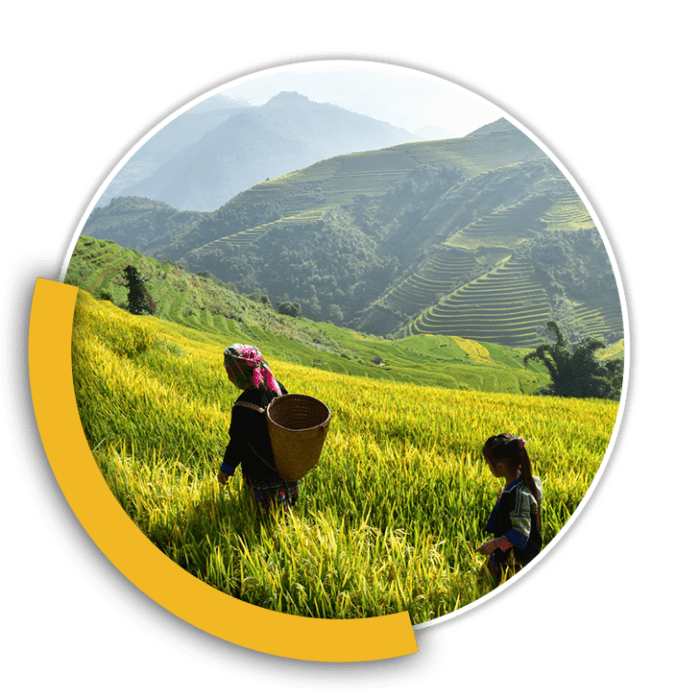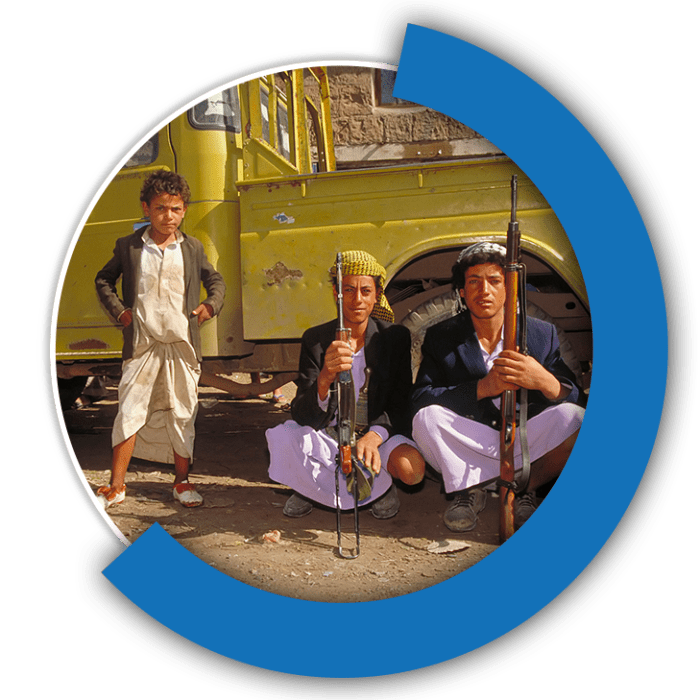We value your privacy
Please note this site uses cookies, are you happy with this? Our privacy statement can be viewed here.
Please note this site uses cookies, are you happy with this? Our privacy statement can be viewed here.
The main conflict dynamics revolve around land, water and high-value natural resources. Security in Somalia (excluding Puntland and Somaliland) is highly volatile, which in many cases can be attributed to rival clans seeking control over valuable resources.
The African Development Bank (ADB) argues that the main source of conflict among communities in Somalia revolves around land and water resources.[1] Roaming pastoralist communities who cross borders regularly can create tensions, as they require access to limited resources for their livestock.
Concessions for exploration offered to international oil companies by Somaliland, Puntland and the FGS overlap,[2] which will undoubtedly lead to disputes if and when recoverable oil is discovered. Oil also plays a key political role in the regional debates and challenges to Mogadishu, and drives secessionist discourses. Conflict between regional entities flared recently and resulted in fatalities over boundary issues[3], and as competition for autonomy over resources intensifies this trend seems likely to continue.
Offshore oil exploration is underway, with estimates pointing to massive reserves similar to those of Kuwait.[4] Despite some progress by the Ministry of Petroleum and Mineral Resources – including drafts for “a model production-sharing agreement for exploration and development” – the lack of an adequate regulatory framework may transform any potential benefits of natural resource extraction into drivers of conflict.[5]
Political volatility has hampered the progress of the Electoral Law. The Law, which had expected to provide a legal structur
e for elections by the end of 2018, is now in danger of not being adopted by Somalia’s Parliament in time to facilitate universal multi-party elections in 2020.
Security is a key issue for the FGS. Political violence and terrorism continues to pose a significant threat to the country, with the deadliest attack witnessed in Somalia taking place in Mogadishu in October 2017.[6] Whilst no group has yet claimed responsibility, FGS blamed the Al-Shabaab insurgency group. Furthermore, multiple foreign states have established a military presence in the country, including the United States and Turkey. The State is seeking to strengthen its monopoly on force within its territory, in line with the ambitions of the Security Council.[7] Whilst heightened security and the ending of insurgency and terror attacks is welcome, heavy-handed tactics by the FGS risk alienating supporters and antagonising clans.[8]
The FGS’ bid to establish control over its territory was dealt another blow in March 2019, when Al-Shabaab carried out an attack in Mogadishu which left 11 people dead, including the Deputy Minister for Labour and Social Affairs.[9] This follows the killing of the Deputy Attorney General in February 2019.[10]
Somalia possesses uranium, largely unexploited reserves of iron ore, tin, gypsum, bauxite, copper, salt, natural gas, as well as likely oil reserves[11]. As colossal recoverable natural gas resources have already been discovered in Mozambique and Tanzania, the potential for oil reserves being found is all the more likely.
Seismic investigation in the search for oil in Somalia has recently been undertaken, with reports indicating massive reserves in the Northern States of Puntland and Somaliland, and a potentially monumental discovery in the South, structurally comparable to the Rovuma basin.[12] In the recent past, the FGS has been accused of awarding exploration permits to private firms without an open and transparent process. It is possible that tensions could arise between the states and the FGS competing for regional- versus centralised-control over resources. These tensions have already been evident between the FGS and Puntland authorities.[13]
The 2008 Petroleum Law entitles the FGS to all natural resources in the state boundaries of Somalia, conversely the 2012 Provisional Constitution allows for regional authorities to enter into agreements with international oil firms[14]. This conflict of statutory law is creating an impasse between regional and central authorities. Moreover, since 2013 the Somali authorities, both in Mogadishu and regionally, have rejected calls from the UN to enact a temporary moratorium on negotiations over oil with international actors[15]. In 2017, with assistance from the World Bank, Somalia’s Ministry for Petroleum and Mineral Resources developed a revised draft of the Petroleum Law, which includes clauses guaranteeing greater public access to information, and clarifies the status of pre-1990 contracts. This proposed legislation has yet to be ratified by Parliament.[16]
Despite the Petroleum Law not yet being adopted by the FGS, in February 2019 the Government held a conference in London to begin the process of awarding exploration licenses to foreign extractives companies. A Government minister claimed that this ‘roadshow’ was one of three to be held in major cities, with a view to turning the international extractives sector’s eyes to Somalia.[17] The conference resulted in a severe diplomatic row erupting, after the country’s neighbour Kenya saw Somali authorities as attempting to auction of sections of its own maritime territory. Both States recalled their Ambassadors, and the case is being considered by International Court of Justice.[18] Notwithstanding the post-conference political dilemma, prospective applicants have been asked to submit their bids for the first offshore licensing round by November 2019.[19]
The Somali and Eritrea Monitoring Group (SEMG) has reported that disputes between the FGS and regional authorities over natural resource governance continue to pose long-term challenges to peace. In an attempt to resolve disputes between federal member states, political leaders from regional authorities formed the Council of Interstate Cooperation. The forum did not include the FGS. The SEMG have reported that, despite shared frustrations across state leaderships with the FGS, have been offset by complex regional dynamics, primarily stoked by electoral processes.[20]
Water scarcity is a key factor in political conflict dynamics. The Government has called for international assistance concerning the current drought[21], and the World Bank has indicated that some of the larger clans are forcing minority groups out of certain areas in order to gain control over land and access to resources.
The Juba and Shabelle rivers have proved to be intense ‘hot spots’ for conflict. In recent years, Ethiopia has indicated its aim of building a dam unilaterally, which would impact Somali water security.
Clan conflict has arisen as powerful clans displace local populations to gain access to the land that is fertile and valuable. Poor institutional framework over land ownership contributes to potential conflicts. At the time of writing this report, a clan elder in the Lower Shabelle region has been assassinated, linked to clan revenge. [22]
Moreover, internally displaced persons (IDPs) returning to land can cause tensions with those who have occupied the land in their absence. Furthermore, the lack of legitimate authorities to enforce laws, friction between IDPs and local communities have occasionally resulted in violence. With the FGS and regional institutions unable to fill the power vacuum being left behind by Al-Shabaab, conflict over land is could ensue.
Supporting the Federal Government of Somalia to put in place a robust and equitable regulatory framework for the management of all natural resources is of vital importance. This framework, however, is necessary but insufficient to ensure natural resource conflicts are prevented and/or managed constructively. The FGS will need increased capacity to ensure the framework is implemented, and that dialogue platforms exist at local, and sub-regional levels to foster discussion between citizens and the State concerning how natural resourced can be used to foster sustainable and broad-based development.
Natural resources could serve as an entry point for dialogue between the conflicting polities within Somalia; keeping peaceful discussions active and constructive is essential for maintaining peace and equitable development, with similar case study evidence indicating reasons for optimism. Natural resources could help foster solutions to broader political and economic issues between Somalia and Somaliland through increased interdependence.
Despite best intentions, Extractive Industry actors in the region must be aware that even ‘do no harm’ approaches carry risks. In the extremely fragile context of Somalia, operations could exacerbate conflict on the ground, and damage company reputation. Exploring non-technical risk, supporting the creation of strong institutions, and promoting continued dialogue between political entities is essential to creating an environment in which operations can take place efficiently, and contribute to local development.

We work with companies (MNCs and SMEs) in fragile and conflict-affected settings to provide them with the necessary knowledge, tools and skills on how to operate in a manner that minimises the negative and maximises the positive impacts on peace and stability - through the development of heightened human rights due diligence and conflict-sensitivity analyses and road maps, and relevant operational support, training, facilitation and mediation.
Learn More
We work with investors with portfolios, investments and/or funds in fragile and conflict-affected settings – including Development Financial Institutions (DFIs), impact and commercial/institutional investors - to provide them with the necessary knowledge, tools and skills to put in place the HQ-level policy processes and country-level level investment frameworks and practices to ensure, a minimum, conflict-sensitive and, ideally, peace-promoting investments; we also assist investors with risk/crisis management and monitoring frameworks.
Learn More
We work with multilateral organisations, governments and non-governmental organisations – including the United Nations and partners - to provide them with the necessary knowledge, tools and skills to undertake effective and efficient peacemaking and peacebuilding endeavours, including on issues such as local approaches to peace, HDP nexus and strategic planning; we have a particularly strong focus on natural resources, climate change and conflict (environmental peacebuilding) and supporting peace actors to more effectively engage licit and illicit business actors.
Learn More